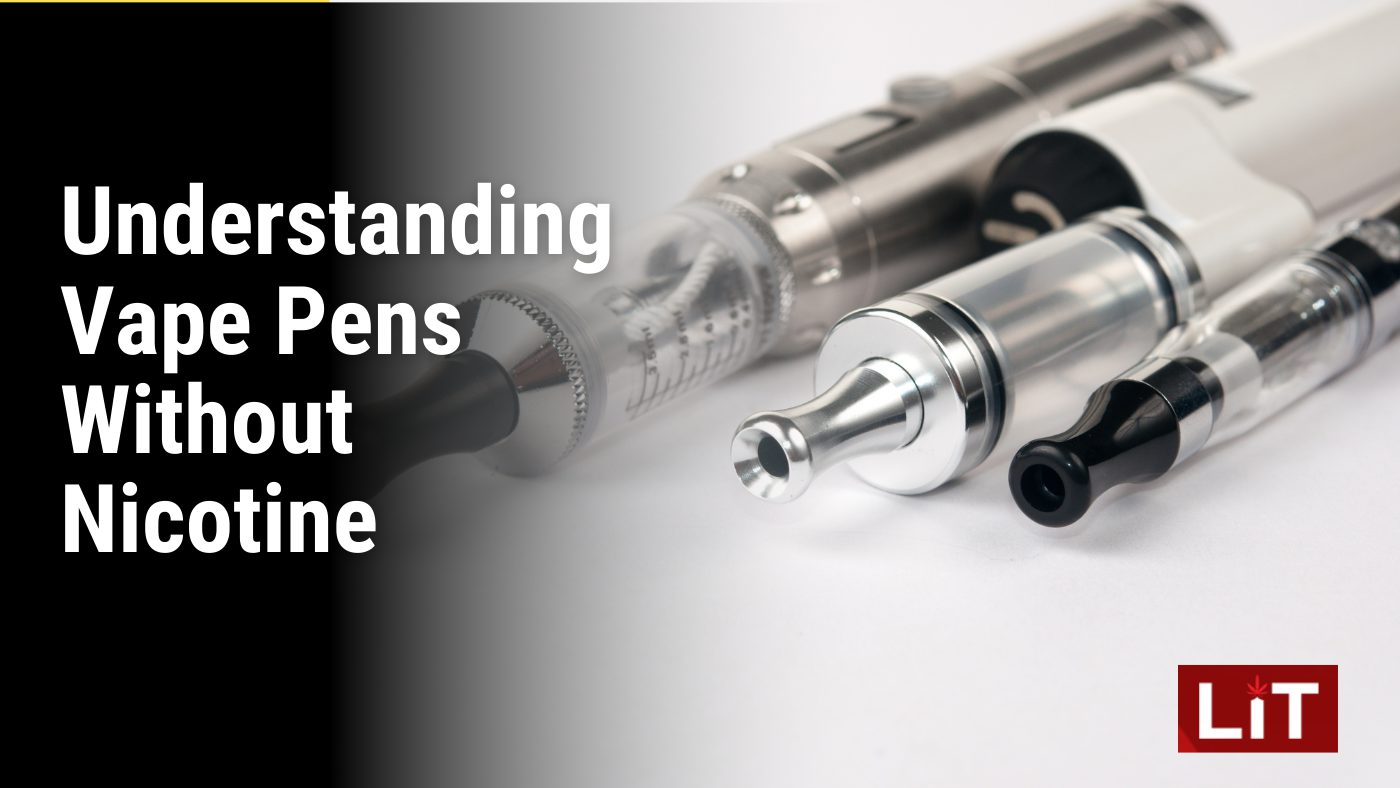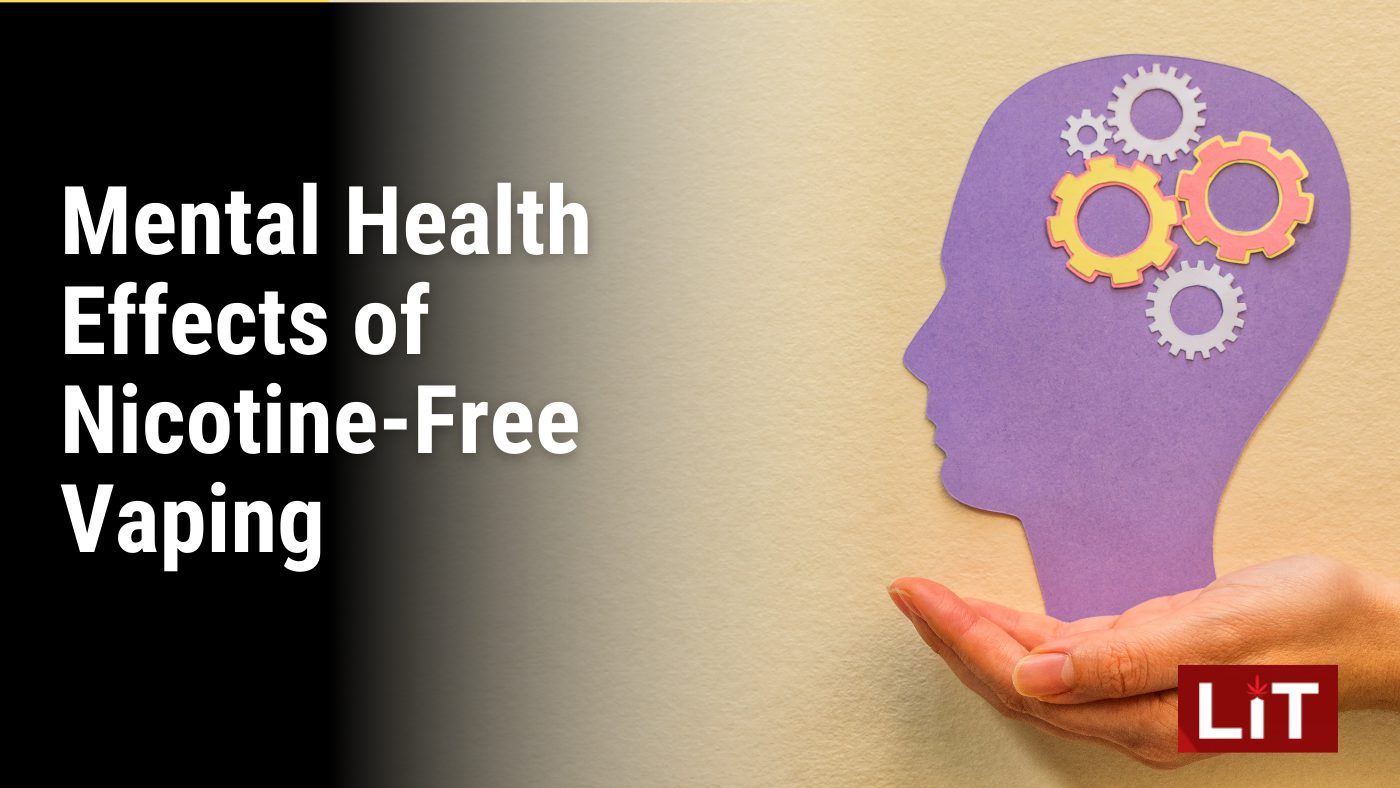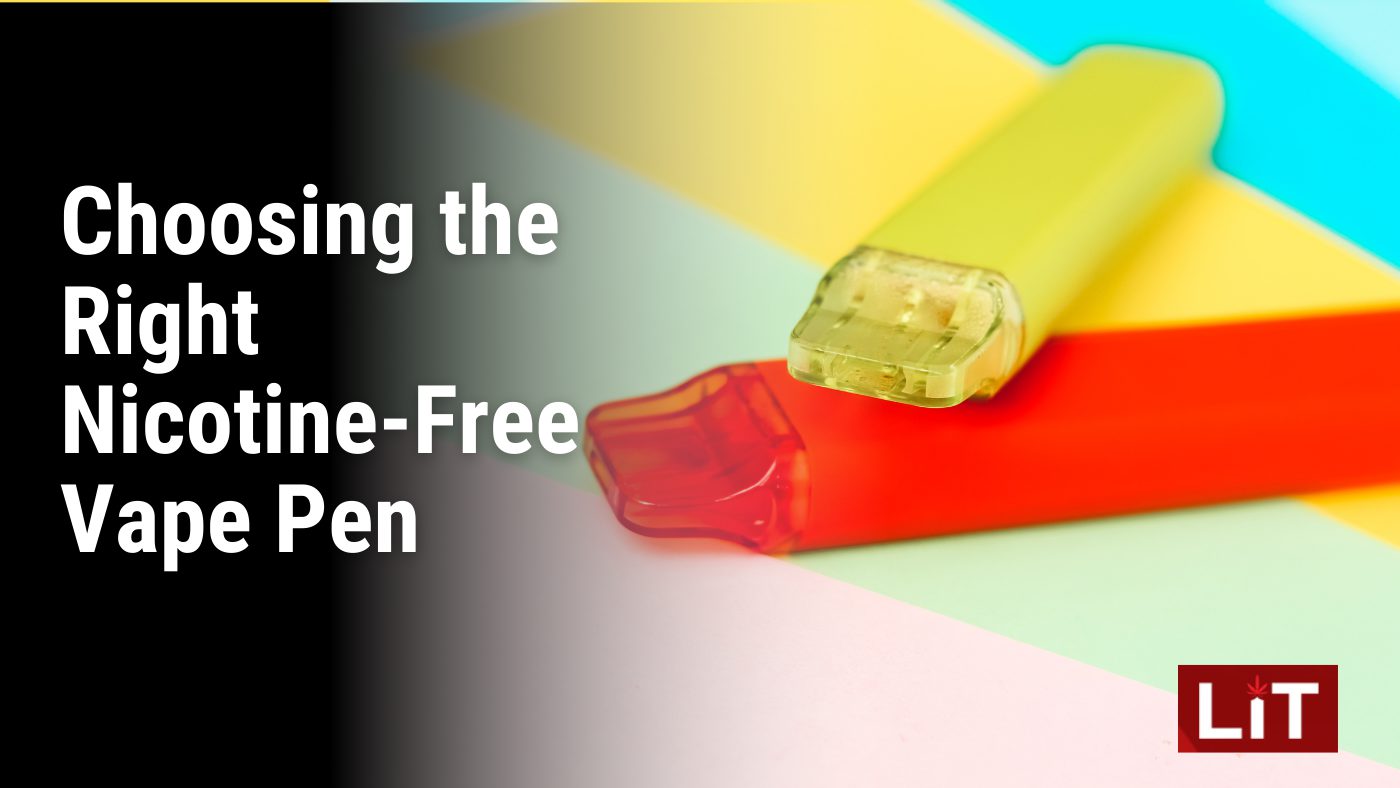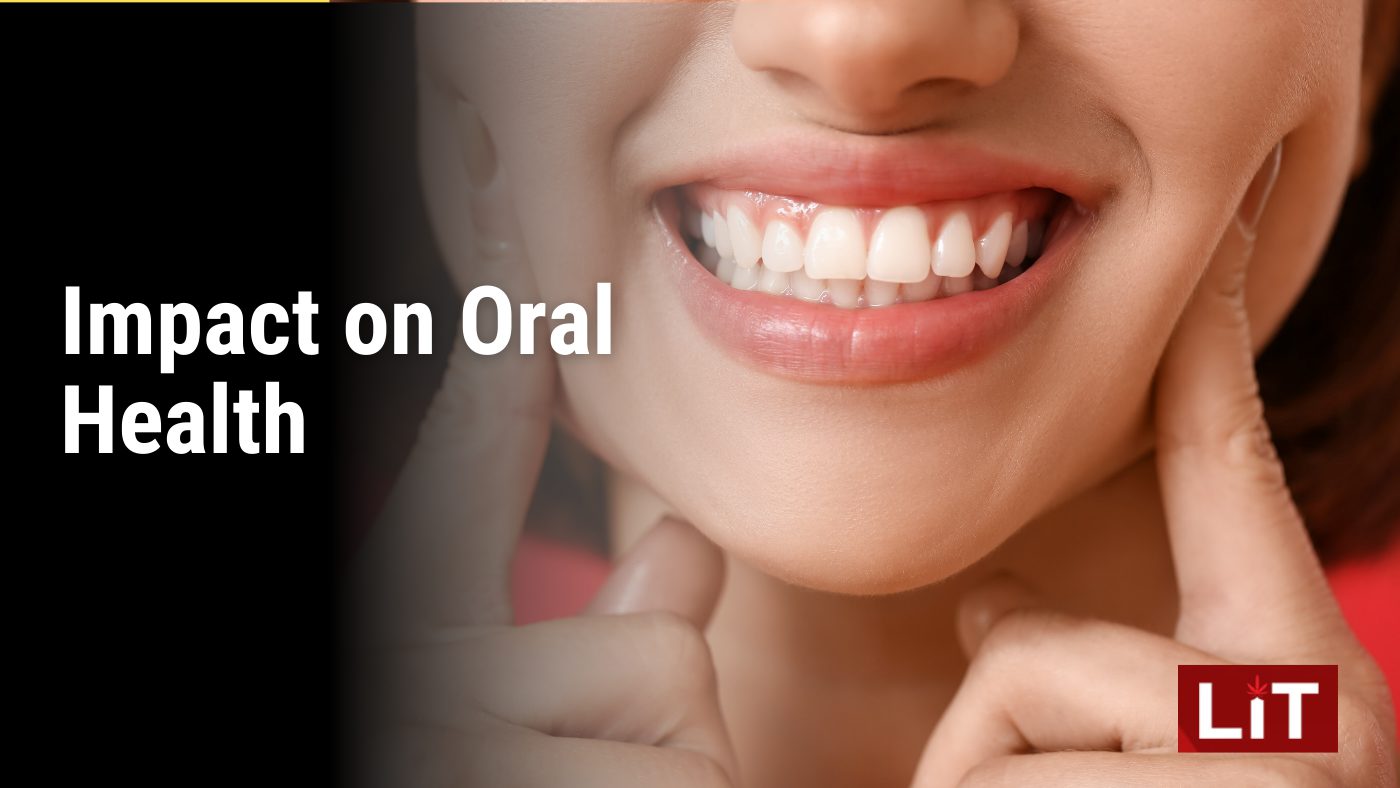Vaping has become a popular alternative to smoking, with many people turning to nicotine-free vape pens as a supposedly safer option. However, the safety of these devices is still a topic of much debate. This article explores the components, health implications, and common misconceptions about nicotine-free vape pens, offering a comprehensive look at whether they are genuinely a safer choice.
Key Takeaways
- Nicotine-free vape pens still contain chemicals that may pose health risks.
- Short-term effects of nicotine-free vaping can include throat and lung irritation.
- Long-term use of nicotine-free vape pens may lead to serious respiratory issues.
- Choosing high-quality ingredients and proper device maintenance can mitigate some risks.
- Understanding the legal and regulatory aspects of vaping is crucial for safe usage.
Understanding Vape Pens Without Nicotine

Vape pens without nicotine heat a liquid to create a vapor that is inhaled. These devices are marketed as a healthier alternative to traditional smoking, but the science is still out on their long-term safety. Understanding how these devices work and what they contain is crucial for anyone considering their use.
Health Implications of Vaping Without Nicotine
Short-Term Health Effects
Vaping without nicotine can still cause immediate health issues. Users might experience throat and lung irritation, leading to coughing and discomfort. Even if a vaping product does not contain nicotine, there is still a risk of being exposed to other potentially harmful chemicals. These chemicals can cause headaches, dizziness, and nausea.
Long-Term Health Risks
The long-term effects of vaping without nicotine are not fully understood. However, chronic use may lead to lung diseases like bronchitis and cardiovascular issues. The chemicals in vape pens can cause inflammation and damage lung tissues, increasing the risk of long-term respiratory problems.
Impact on Respiratory System
Vaping can introduce toxins into the lungs, causing irritation and inflammation. Over time, this can lead to chronic respiratory conditions. The aerosol produced by vape pens contains ultrafine particles and toxic substances that can cause lung damage and breathing difficulties.
Comparing Nicotine-Free Vaping to Traditional Smoking
Chemical Exposure
When comparing nicotine-free vaping to traditional smoking, one of the main differences lies in the chemicals involved. Traditional cigarettes contain thousands of harmful chemicals, many of which are known to cause cancer. In contrast, nicotine-free vape pens typically contain fewer chemicals. However, they still introduce substances like propylene glycol and glycerin into the body. Understanding the potential risks of these chemicals is crucial for anyone considering vaping as an alternative to smoking.
Impact on Lung Health
Traditional smoking is well-known for its detrimental effects on lung health, including chronic bronchitis and lung cancer. Nicotine-free vaping, while often perceived as safer, is not without its own risks. The inhalation of vapor can still cause lung irritation and other respiratory issues. It’s important to note that the long-term effects of vaping are still largely unknown, making it essential to weigh the potential risks and benefits.
Addiction Potential
One of the significant advantages of nicotine-free vaping is its non-addictive nature. Traditional cigarettes contain nicotine, a highly addictive substance that can lead to dependence and withdrawal symptoms. Nicotine-free vape pens eliminate this risk, making them a potentially safer option for those looking to avoid addiction. However, the act of vaping itself can become a habit, and it’s important to be mindful of this potential behavioral change.
The debate over vaping’s impact on youth smoking rates, concerns about safety, and potential harm reduction compared to traditional cigarettes continues to be a topic of significant discussion.
Mental Health Effects of Nicotine-Free Vaping

Anxiety and Depression
Nicotine-free vaping can still have a significant impact on mental health. The chemicals in vape pens can alter brain chemistry, potentially leading to increased feelings of anxiety. Regular use may also contribute to depressive symptoms, making it crucial to understand these risks.
Cognitive Function
The use of vape pens can affect cognitive function. Substances in the vapor can impair memory and concentration. This is especially concerning for young users whose brains are still developing.
Behavioral Changes
Dependence on vape pens can develop quickly due to the addictive nature of the act of vaping itself. Withdrawal symptoms can include irritability, difficulty concentrating, and mood swings. Understanding the potential for addiction is crucial for anyone considering vaping.
The chemicals in vape pens can affect health with immediate and long-term risks, including lung and heart damage. Understanding their impact on oral health and addiction is crucial.
Safety Concerns and Precautions
When it comes to using nicotine-free vape pens, safety is a major area of concern. Although these devices are often marketed as safer alternatives, they still come with their own set of risks. Understanding these risks and taking appropriate precautions can help ensure a safer vaping experience.
Legal and Regulatory Aspects
Federal Regulations
In the United States, vape pens’ regulation falls under the Food and Drug Administration (FDA). The FDA has established guidelines to ensure the safety and quality of vaping products. These regulations include age restrictions, requiring purchasers to be at least 21 years old, and mandates for health warnings on packaging. Federal laws also prohibit the sale of vape pens to minors and regulate the marketing practices of these products.
State-Specific Laws
State and local authorities can impose additional restrictions on the sale and use of vape pens. For instance, some states have banned flavored e-liquids to curb youth vaping. As of March 31, 2023, seven states and numerous local jurisdictions have enacted such bans. It’s crucial to be aware of the specific laws in your state to avoid legal complications.
International Guidelines
When traveling internationally, it’s essential to understand the vaping laws of your destination country. Some countries have stringent regulations, while others may ban vaping products altogether. Always research the local laws before traveling to ensure compliance and avoid penalties.
Navigating the legal landscape of vaping can be complex, but staying informed about federal, state, and international regulations is crucial for responsible use.
Choosing the Right Nicotine-Free Vape Pen

When selecting a nicotine-free vape pen, it’s essential to find one that meets your needs and preferences. With a variety of options available, you can discover the best nicotine-free vapes that suit your lifestyle.
Disposable vs. Reusable
Vape pens come in two main types: disposable and reusable. Disposable vape pens are ideal for beginners or those seeking a hassle-free experience. They are pre-filled and ready to use right out of the box. On the other hand, reusable vape pens are more cost-effective in the long run. They allow you to refill the cartridge and recharge the battery, making them a more sustainable choice.
Battery Life and Performance
Battery life is a crucial factor to consider when choosing a vape pen. A longer battery life means you can use your vape pen for extended periods without recharging. Additionally, the performance of the vape pen, including the quality of the vapor produced, is essential for a satisfying experience.
User Reviews and Recommendations
Reading user reviews can provide valuable insights into the performance and reliability of different vape pens. Look for reviews that discuss battery life, vapor quality, and overall satisfaction. User feedback can help you make an informed decision and avoid potential issues.
Choosing the right nicotine-free vape pen can significantly enhance your vaping experience. Whether you prefer the convenience of a disposable pen or the long-term benefits of a reusable one, there is an option out there for you. Always consider battery life, performance, and user reviews to make the best choice.
Common Misconceptions About Nicotine-Free Vaping
‘It’s Just Water Vapor’
Many people think that the aerosol from vape pens is just water vapor. However, it contains tiny particles, including flavorings and other chemicals, that are inhaled deeply into the lungs. This process introduces various chemicals into the body, some of which have unknown long-term effects.
Safety Compared to Nicotine Vapes
There is a common belief that nicotine-free vapes are much safer than those with nicotine. While they do eliminate the risks associated with nicotine addiction, they still expose users to other harmful substances. The long-term health effects of these chemicals are still not fully understood.
Effectiveness as a Smoking Cessation Tool
Nicotine-free vapes are often marketed as a tool to help people quit smoking. While they might help some individuals, they are not a guaranteed solution. The absence of nicotine does not necessarily make it practical for everyone trying to quit smoking.
It’s important to understand that even nicotine-free vapes come with their own set of risks and should be used with caution.
Potential Benefits of Nicotine-Free Vaping
Nicotine-free vaping offers several potential benefits for those looking to reduce their exposure to harmful substances. One of the primary advantages is the reduced chemical exposure compared to traditional smoking. Since nicotine-free vapes do not contain nicotine, users avoid the addictive properties associated with it, making these devices a non-addictive alternative. Additionally, the variety of flavors available in nicotine-free e-liquids can make the experience more enjoyable for users.
Impact on Oral Health

Gum Health
Vaping without nicotine can still affect your gums. The chemicals in the vapor can cause gum irritation and even lead to gum disease. Persistent dry mouth is another common issue that can worsen gum health.
Tooth Decay
The sweeteners in e-liquids can contribute to tooth decay. When you vape, these sugars can stick to your teeth, promoting the growth of harmful bacteria. This can lead to cavities and other dental problems.
Oral Hygiene Practices
Maintaining good oral hygiene is crucial if you vape. Regular brushing and flossing can help mitigate some of the adverse effects. Visiting your dentist regularly is also essential to catch any issues early.
Vaping can have a significant impact on your oral health, even if it doesn’t contain nicotine. Being aware of these risks can help you take better care of your mouth and gums.
Taking care of your mouth is super important, mainly if you use vape pens. Vaping can affect your teeth and gums, so knowing how to keep them healthy is good. Want to learn more tips on keeping your smile bright? Visit our website for more info!
Conclusion
In conclusion, while vape pens without nicotine may seem like a safer option, they are not without risks. The chemicals used in these devices can still pose health hazards, including lung and heart issues. The impact on mental health and cognitive function cannot be ignored. It’s essential to approach vaping with caution, understanding that the absence of nicotine does not equate to safety. Further research is needed to comprehend the long-term effects fully. Therefore, making informed decisions and considering all potential risks is crucial for anyone thinking about using vape pens, whether they contain nicotine or not.
Frequently Asked Questions
What are nicotine-free vape pens?
Nicotine-free vape pens heat a liquid to create an inhaled vapor. These liquids do not contain nicotine but may have other substances like flavors or CBD.
Are nicotine-free vape pens safe to use?
While they don’t contain nicotine, nicotine-free vape pens can still have harmful chemicals. The long-term effects of these chemicals are not fully known, so it’s essential to use them cautiously.
Can vaping without nicotine harm your lungs?
Yes, vaping without nicotine can still irritate your lungs and throat. The vapor contains tiny particles and chemicals that can cause inflammation and other lung issues.
Is vaping without nicotine addictive?
Nicotine-free vaping is less addictive than vaping with nicotine. However, the habit of vaping itself can become addictive for some people.
What ingredients are in nicotine-free e-liquids?
Common ingredients in nicotine-free e-liquids include propylene glycol, vegetable glycerin, flavorings, and sometimes CBD or other substances.
Can nicotine-free vape pens help you quit smoking?
Some people use nicotine-free vape pens to help quit smoking, but their effectiveness is not guaranteed. It’s best to consult a healthcare provider for quitting strategies.
Are there any benefits to nicotine-free vaping?
Nicotine-free vaping reduces the risk of nicotine addiction and allows users to enjoy various flavors. However, it’s not entirely risk-free.
What should I look for when choosing a nicotine-free vape pen?
When choosing a nicotine-free vape pen, consider factors like battery life, ease of use, ingredient quality, and user reviews to ensure a safe and enjoyable experience.
